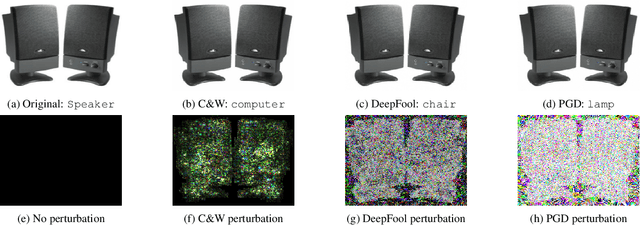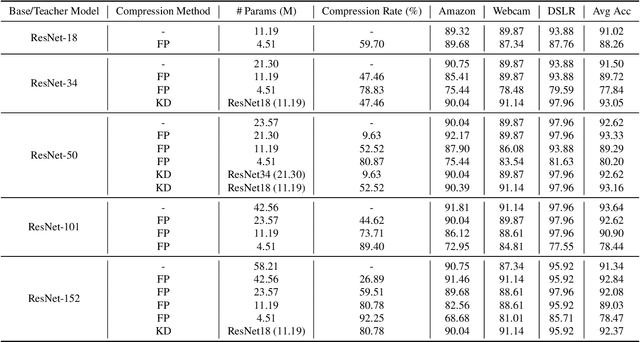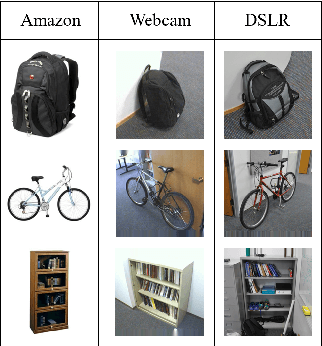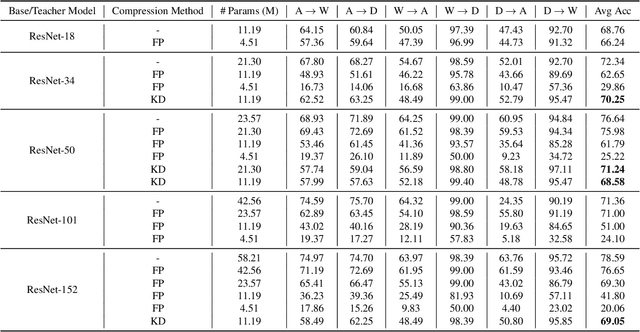Robustness to distribution shifts of compressed networks for edge devices
Paper and Code
Jan 22, 2024



It is necessary to develop efficient DNNs deployed on edge devices with limited computation resources. However, the compressed networks often execute new tasks in the target domain, which is different from the source domain where the original network is trained. It is important to investigate the robustness of compressed networks in two types of data distribution shifts: domain shifts and adversarial perturbations. In this study, we discover that compressed models are less robust to distribution shifts than their original networks. Interestingly, larger networks are more vulnerable to losing robustness than smaller ones, even when they are compressed to a similar size as the smaller networks. Furthermore, compact networks obtained by knowledge distillation are much more robust to distribution shifts than pruned networks. Finally, post-training quantization is a reliable method for achieving significant robustness to distribution shifts, and it outperforms both pruned and distilled models in terms of robustness.
 Add to Chrome
Add to Chrome Add to Firefox
Add to Firefox Add to Edge
Add to Edge